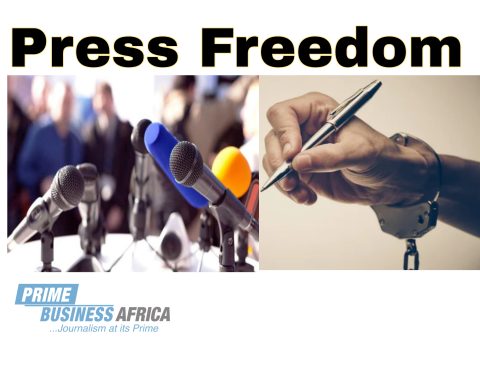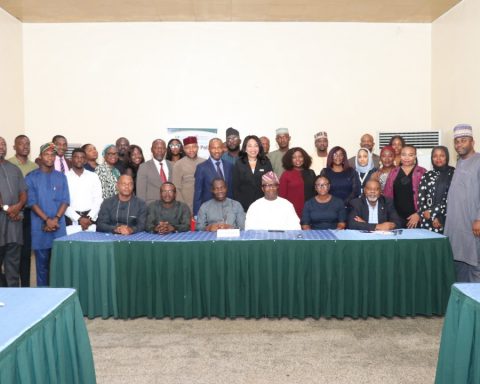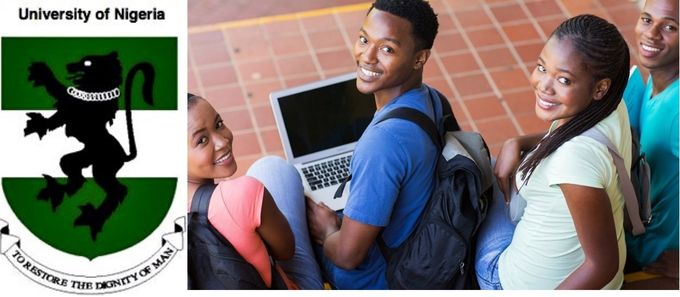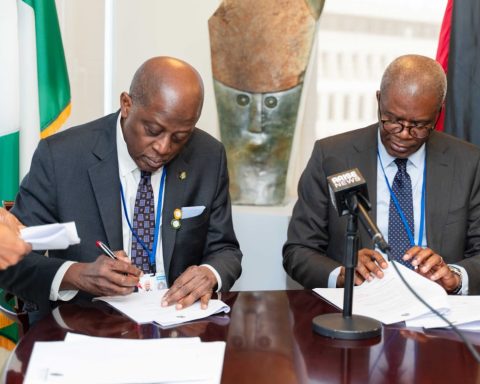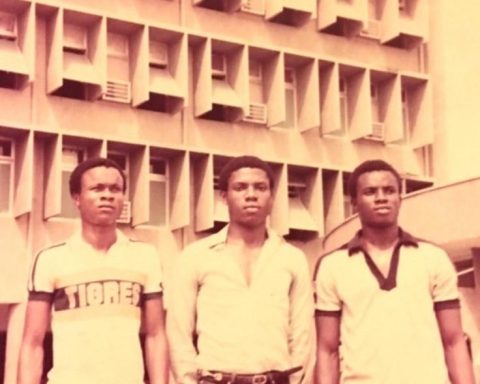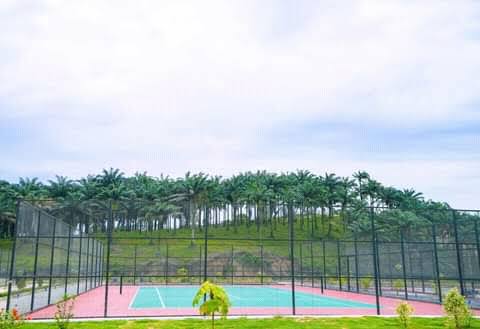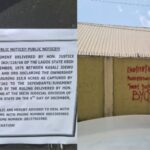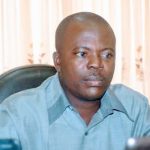The Internet has become a watershed, binding together every part of the world in intricate ways. People often talk about the dangers of the Internet, but its usefulness is such that that no one can imagine a world without it. It, therefore, becomes imperative that it must be used and managed in a collaborative way for maximal outcomes in social development. Such collaborative use is a sure way to circumvent the threat that the internet poses.
Experts have therefore coined the word digital governance to articulate ways to get every stakeholder involved in optimal and maximal use of the internet in a social sense. Without doubt, the complexity and interconnectedness of the internet means that no single entity can effectively decide how it works, hence, the need for effective digital governance to eschew fraud.
Join our WhatsApp ChannelDigital governance is a framework and process that organisations and governments use to manage their digital presence in order to ensure accountability, decision-making authority, and effective communication across digital platforms. It encompasses the management of websites, social media, and other online services, focusing on transparency, security, and user engagement. By its nature, digital governance implies affordability and access to the internet by users as well as freedom of speech and public opinion. This is a truism that Nigeria loves to ignore due to its stiff tendency to centralisation.
The United Nations Development Programme (UNDP) says that “digital tools and platforms can empower people by providing widespread access to information and global connections. Where digital governance is truly functional, citizens use technology to hold governments accountable, and governments, in turn, are using technology to be more transparent, accountable, and inclusive.” Digital governance encompasses various issues, particularly freedom of speech and the regulation of social media platforms.
The Nagging Issues in Digital Governance
In Nigeria, there have been many cries from individuals concerning government attitudes towards censoring social media, the only hope citizens have to share their views on government actions. Yet the same government has not improved its worthiness of protection of personal data.
Many online users, content creators, and even journalists — who are the pioneers of information flow —lament bitterly. For instance, Tola Owoyele, a Nigerian journalist tweeted on 13 January 2022. “This deal gives the government too much power to monitor and control what we say. It is a threat to our voices!” Reports have also indicated that many social media users and advocates have complained of being threatened or arrested because of particular social media posts.
There is a disparity between policies aimed at protecting rights and those that facilitate censorship in the digital landscape. Considering these challenges, one may ask: “How well has the country promoted freedom of speech/communication through several new media platforms?”
While the 1999 Constitution guarantees freedom of expression, this right is not absolute; it comes with specific exceptions aimed at protecting public safety and order. Unfortunately, government and social media companies often hide under the cover of enforcing public order to engage in content filtering, blocking, and suspensions. This has led to fears among users that their voices are silenced for expressing dissenting opinions.
Digital Governance in Nigeria has been like Nigerian Politics
Since Nigeria has been grappling with digital governance and promotion of freedom of speech through various digital platforms, the government has come up with some initiatives as follows:
National E-Government Master Plan (NEGM): Launched in 2021, this 10-year plan aims to improve public service delivery through a seamless electronic platform connecting citizens with government institutions. It focuses on integrated services, citizen participation, electronic payments, cybersecurity, and a comprehensive database of government information.
National Digital Economy and E-Governance Bill (2024) is a similar effort. This bill seeks to enhance Nigeria’s digital landscape by providing a legal framework for electronic transactions and communications. It aims to improve public service delivery, protect consumer rights, and support international digital trade.
However, the protection of individual data remains a critical concern, particularly in light of laws that can restrict freedom of speech. The National Commission for the Prohibition of Hate Speech Bill proposed in 2019 imposes severe penalties for hate speech, raising concerns about its vague definitions potentially suppressing legitimate criticism. Additionally, the Cyber Crimes Act of 2015 has been used to limit online expression.
READ ALSO: Editors Condemn Increasing Spate of Journalists’ Abduction
The government’s ban on Twitter from June 2021 to January 2022 further exemplifies censorship under the guise of national security. Despite discussions on a comprehensive Data Protection Bill drafted in 2020, significant gaps remain between proposed protections and actual implementation; highlighting ongoing challenges in safeguarding digital rights in Nigeria. Like Nigerian politics, where incumbents rig the system to hold onto power, digital governance has become an autocratic terrain where government has shown constantly that freedom of speech should not include criticism of office holders.
The Voices of the Public
In July 2024, Paradigm Initiative (PIN), a Pan-African nongovernmental organisation advocating digital rights and inclusion uncovered a significant data breach involving the website AnyVerify.com.ng, which has been operating since November 2023. The organisation in a press release revealed that the site was found to be selling sensitive personal information for as little as ₦100 per request. The breached data included National Identification Numbers (NINs), Bank Verification Numbers (BVNs), virtual NINs, driving licences, international passports, company details, tax identification numbers (TINs), permanent voter’s cards (PVCs), and phone numbers.
According to the Organisation, the scale of the breach was alarming, with the website reportedly receiving over 567,990 visits in February 2024 and around 188,360 visits in April 2024. This showed a significant level of activity and high demand for the illicitly sold data. The breach posed severe risks including identity theft, financial fraud, and threats to national security. In response, Paradigm Initiative filed a public interest case against several government agencies including the National Identity Management Commission (NIMC), urging them to take action against such illegal activities and enhance data protection measures.
READ ALSO: Meet Nigerian Prof, Rose-Margaret Ekeng-Itua, World’s First Black Woman Ph.D Holder In Cybernetics
Also, Mohammed Yakubu from Bauchi and a recent graduate of Civil Engineering from the University of Ilorin explained that he experienced a breach of his personal data when he received an unsolicited congratulatory message regarding a scholarship he never applied for. Initially dismissing it as spam, he later realised that his information had been shared without his consent.
It is no longer news about how individuals usually receive calls from unknown persons who will provide them with some bank details making them believe the caller is from their bank. This was an issue faced by a final year student at the University of Nigeria Nsukka who pleaded anonymity. He explained how he lost funds saved in his account after an unknown number called him claiming there was an issue with his account that needed ratification. He said he believed the caller because they provided him with some personal data. These incidents raise concerns about data privacy and the unauthorised use of personal information of Nigerian citizens. The case of kidnappers using mobile phones for ransom transactions is even more worrisome.
Need To Foster Democratic Engagement Across Diverse Platforms, Experts’ Concerns
It is indeed clear that policies facilitating censorship have been implemented more readily. Governments tend to justify these measures under the guise of national security or public order, leading to increased monitoring and suppression of dissenting voices online. However, government appears unwilling to apply the same level of censorship it uses to detect so-called hate speech and arrest internet fraudsters. The implication is absence of digital governance structure that allows every stakeholder the space to contribute their quota in making the internet a safer place.
Justice Potter Stewart once stated: “Censorship reflects society’s lack of confidence in itself. It is a hallmark of an authoritarian regime.” This underscores the idea that when governments prioritise censorship, they undermine public discourse and freedom of expression.
The U.S. Supreme Court Justice William O. Douglas’s assertion that “restriction of free thought and free speech is the most dangerous of all subversions” resonates deeply within the context of imperatives for digital governance. This perspective underscores the essential role of free expression in fostering democratic engagement and innovation across diverse platforms because where governments, civil society, and private entities collaborate to shape digital policy, the ability to express ideas freely is crucial.
Fake news, misinformation, and disinformation have remain the major problems facing the digital future. Yet technology and methods exist to take care of these through AI-empowered fact-checking and the justice system. Outright harassment of internet users is not the solution. While Nigeria has made strides in promoting freedom of speech through new media platforms, ongoing concerns about censorship, misinformation, and limitations imposed by both governmental and corporate actions highlight the need for a more robust framework that protects individual rights while fostering open dialogue.
Dr Mbamalu is a Jefferson Fellow, member of the Nigerian Guild of Editors (NGE) and a renowned Publisher.
Dr. Marcel Mbamalu is a distinguished communication scholar, journalist, and entrepreneur with three decades of experience in the media industry. He holds a Ph.D. in Mass Communication from the University of Nigeria, Nsukka, and serves as the publisher of Prime Business Africa, a renowned multimedia news platform catering to Nigeria and Africa's socio-economic needs.
Dr. Mbamalu's journalism career spans over two decades, during which he honed his skills at The Guardian Newspaper, rising to the position of senior editor. Notably, between 2018 and 2023, he collaborated with the World Health Organization (WHO) in Northeast Nigeria, training senior journalists on conflict reporting and health journalism.
Dr. Mbamalu's expertise has earned him international recognition. He was the sole African representative at the 2023 Jefferson Fellowship program, participating in a study tour of the United States and Asia (Japan and Hong Kong) on inclusion, income gaps, and migration issues.
In 2020, he was part of a global media team that covered the United States presidential election.
Dr. Mbamalu has attended prestigious media trainings, including the Bloomberg Financial Journalism Training and the Reuters/AfDB Training on "Effective Coverage of Infrastructural Development in Africa."
As a columnist for The Punch Newspaper, with insightful articles published in other prominent Nigerian dailies, including ThisDay, Leadership, The Sun, and The Guardian, Dr. Mbamalu regularly provides in-depth analysis on socio-political and economic issues.




